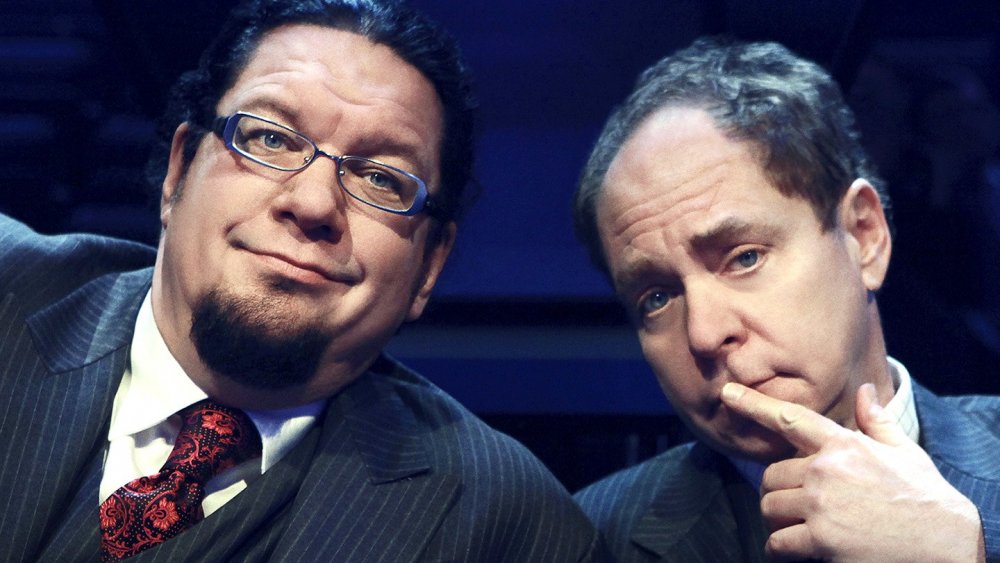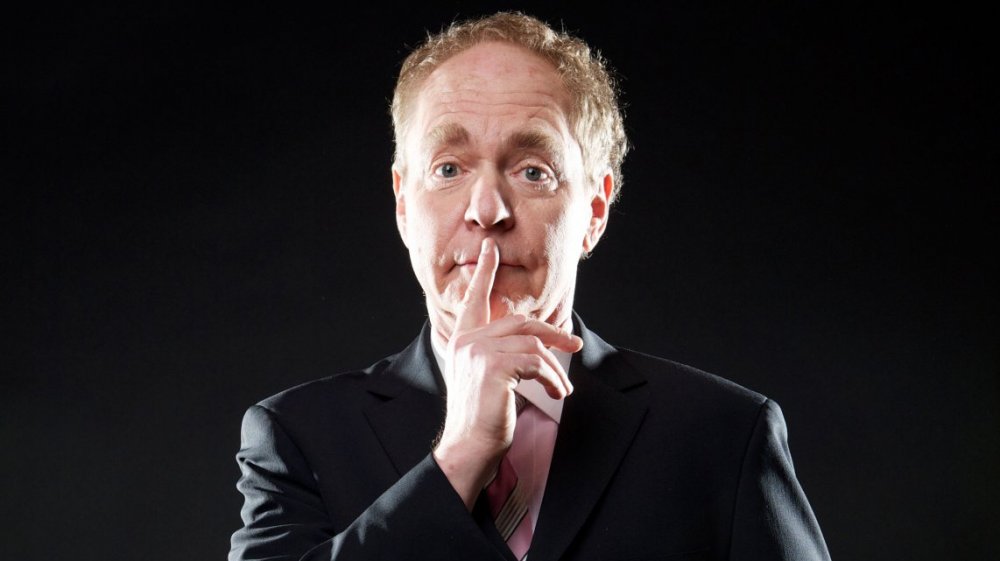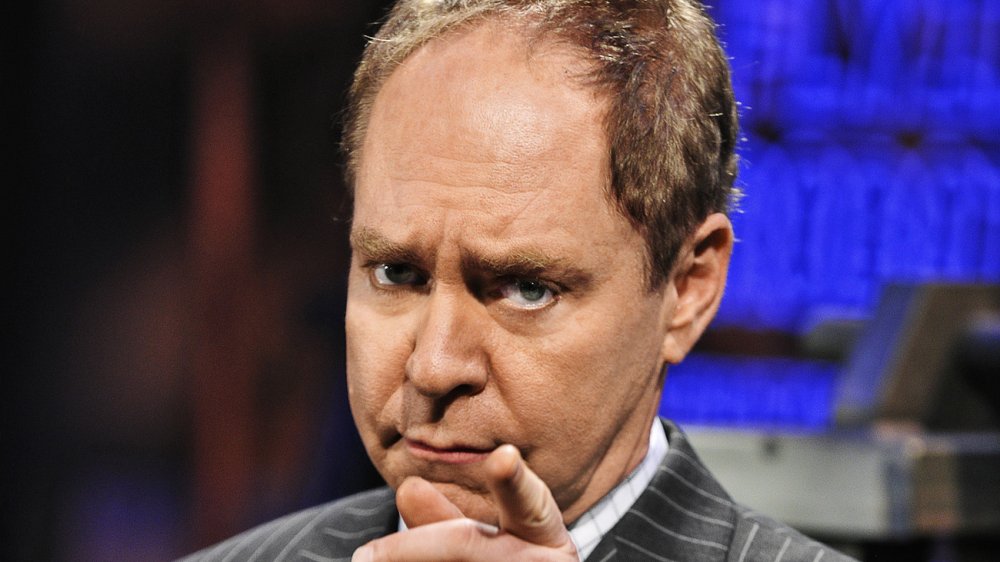The Real Reason Teller From Penn & Teller: Fool Us Doesn't Speak
If you've partaken of pop culture in any form in the last 40 years or so, then you may be familiar with Penn and Teller, the legendary, iconoclastic magicians who have made their name exposing the secrets of the trade, performing for millions of adoring fans, and making us all laugh and think in equal measure. Their CW series Penn and Teller: Fool Us, in which they challenge magicians to hit them with a trick — any trick — that they can't figure out, is merely the latest chapter in the career of a duo who have been performing together since 1981.
You may also be aware of one remarkably consistent part of their schtick: one of them never shuts up, and the other never speaks. Teller (who long ago had his name legally changed to that mononym) has long served as the silent straight man to Penn Jillette's motor-mouthed funnyman, and in a recent Huffington Post interview, Jillette — speaking for Teller, as per usual — explained why this is.
"I get no credit or blame for Teller not speaking," Jillette said. "Teller speaks very well, but he decided to work silently in magic, because he was working rough environments where he was apt to be heckled. And Teller just thought if he was quiet, they'd grow weary of heckling him."
Teller has told the same story in the past
It sounds like a bit, but if it is, the duo have been consistent about it. In fact, Teller — who apparently does speak very well — has told the same story himself. The "rough environments" Jillette was referring to? Frat houses.
"I was playing fraternity parties at Amherst College, where I went. And I am a small man of not particularly imposing proportions or voice," Teller recalled in an interview with NPR. "And if I had tried to assert myself over a room full of drunken kids groping their dates and drinking beer, they would not have paid any attention to me. So I found that if I turned off all the lights except for a few lawn spotlights that I carried with me and put them on me, and then did creepy things like swallowing razor blades... I found that when I did that sort of thing, they paid attention to me in a way that if I had tried to assert myself over them, they wouldn't have. It sort of undercut any kind of heckling."
Teller went on to say that although he's not the only magician to utilize silence as part of their act, he feels that the way in which he does it is unique. "A lot of people who don't speak onstage in magic blast the audience with music that is loaded with all sorts of emotions. I think that's cheating," he said. "And by stripping away music, by stripping away speech, there is a level of intimacy that I feel with the audience that is deep. It's very deep."
Does Teller ever speak during performances?
Obviously, Teller can be induced to speak rather freely when he is not onstage or in front of the cameras. But if you're curious as to whether he has ever offered up a few choice words during a performance, the answer is: kind of.
Probably the best example of Teller breaking his silence is during the duo's famous "Mofo the Psychic Gorilla" bit, a debunking of "psychic" performers in which Teller — standing just offstage, so that he can't be seen by the audience — supplies the voice of Mofo (via the Los Angeles Times). This is a recurring theme; almost without fail, Teller only speaks up when he's offstage, or when his face is obscured. And even then, he doesn't do it often.
One incredibly rare instance of Teller actually speaking words on camera was captured for all the world to see, though, in the season 11 finale of the long-running sitcom The Big Bang Theory (via Entertainment Weekly). In it, the parents of Amy Fowler (Mayim Bialik) showed up at her wedding to Sheldon (Jim Parsons); her mother was portrayed by Kathy Bates, who throughout the episode continually talked over her father, portrayed by none other than Teller.
When the abrasive Mrs. Fowler got into a verbal altercation with Penny (Kaley Cuoco), she admonished her husband to say something to this girl who had spoken to her so rudely. The man obliged, whispering all of two words to Penny: "Thank you."
He can talk, you see; he just prefers not to unless it's in the service of a really good gag.


